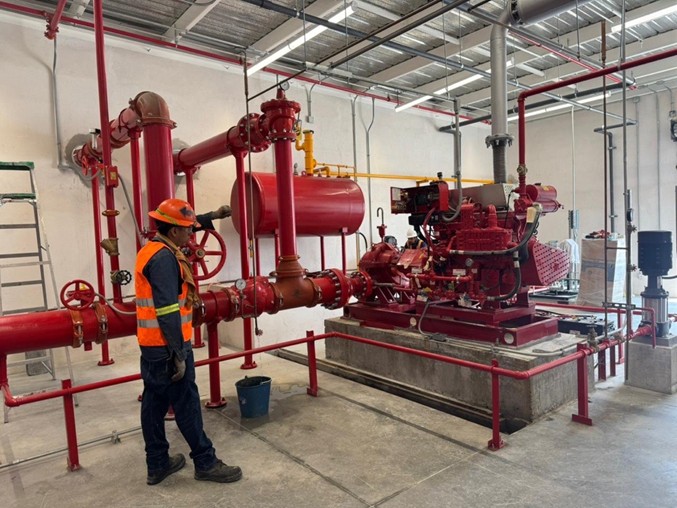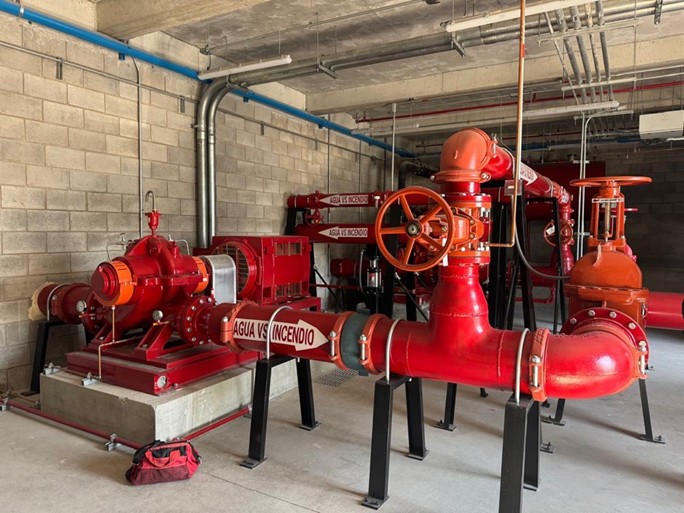Preventive maintenance: NFPA review for chemical facilities
Ruhrpumpen's Fire Campus: August 2025
Regular testing and preventive maintenance of fire pumps are essential to ensure safety in chemical facilities. NFPA 20, in conjunction with NFPA 25, requires that pumps be started and run at full speed at defined intervals to verify they are always ready for service. Weekly or monthly nonflow testing detects early signs of malfunction and confirms that pumps can respond effectively in an emergency, preventing small issues from escalating into serious hazards.

Routine inspections also help identify subtle performance degradations, such as a drop in net pump pressure, which may result from worn components, suction obstructions, or clogged impellers. Diesel engine–driven pumps require additional preventive measures, including checking engine temperature, oil, fuel, and cooling systems, ensuring that the pump can operate under maximum load conditions. Flowmeter tests and accurate monitoring of suction and discharge gauges further support reliable operation.

For chemical facilities, where stored substances can be highly flammable or reactive, these scheduled inspections and tests are the first line of defense. Maintaining detailed records of pump performance, maintenance actions, and operational parameters allows facility managers to act before failures occur.
Don’t wait for emergency, proactive testing and maintenance save lives, protect property, and ensure uninterrupted fire protection.
